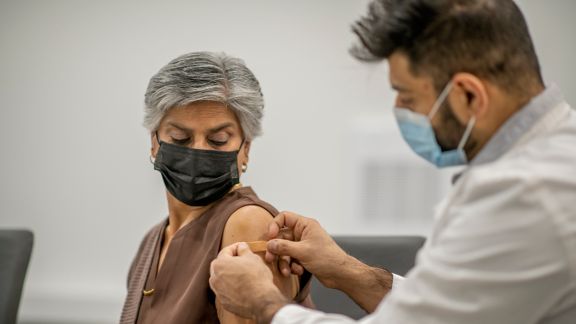Evaluation Training and Technical Assistance Center (ETAC)

Problem
The Department of Defense (DoD) needed infrastructure and support for evaluating its programming to prevent harmful behaviors.
The DoD is implementing a broad array of programs, policies, and practices aimed at preventing sexual assault and other harmful behaviors and addressing factors that contribute to harmful behaviors. However, the effectiveness of these efforts is unclear. To address this issue, the DoD will support a technical assistance (TA) resource center to provide TA to the integrated primary prevention workforce within the Services, building DoD’s capacity to address sexual assault and other harmful behaviors.
DoD has a three-fold goal with this approach:
- Increasing the availability of prevention activities that have evidence of effectiveness in preventing harmful behaviors in military settings
- Increasing an understanding of the factors that contribute to harmful behaviors among various demographic subgroups to inform prevention planning.
- Increasing the use and evaluation of prevention efforts at the outer levels of the social ecology (e.g., military setting social norms)
Solution
NORC will assist DoD in developing a strong prevention workforce to address sexual assault and other harmful behaviors.
NORC will provide evaluation support for selected prevention activities, including partnering with leadership to understand each program, determining evaluability, and developing rigorous evaluation plans.
NORC efforts will focus on:
- Evaluability assessments and rigorous evaluations of DoD prevention activities currently being implemented
- The development of a database on relevant metrics for use by DoD personnel
- Evaluation of programs implemented in response to the IRC recommendations, including prevention training, prevention strategies at the outer levels of the social ecology, and targeted prevention strategies
Depending on the specific project, NORC tasks include developing data collection instruments, administering data collections, conducting analyses, and providing final reports and other dissemination products.
Result
Moving military communities toward implementation of effective, multilevel approaches.
To address the various forms of harmful behaviors, military communities need a comprehensive set of effective programs, policies, and practices that allow them to select approaches to meet their unique contextual needs (e.g., population, specific harmful behaviors) and to evaluate the implementation of the activities in their military communities. The availability of a broad range of evidence-based strategies will help move military communities toward the implementation of effective, multilevel approaches that address contributing factors across individual, interpersonal, organizational, and policy levels and hold promise for reducing, with the goal of eliminating, the occurrence of sexual assault and other harmful behaviors in the military.
Related Tags
Project Leads
-
Elizabeth Mumford
Senior FellowCo-Project Director -
Bruce Taylor
Senior FellowCo-Project Director -
Cynthia M. Simko
Associate DirectorSenior Staff -
Ashani Johnson-Turbes
Vice PresidentSenior Staff -
Alexis Marbach
Senior Research ScientistSenior Staff -
Michelle Johns
Senior Research ScientistSenior Staff -
Jennifer Berktold
Principal Research ScientistSenior Staff -
Caroline Lancaster
Research MethodologistMethodologist














